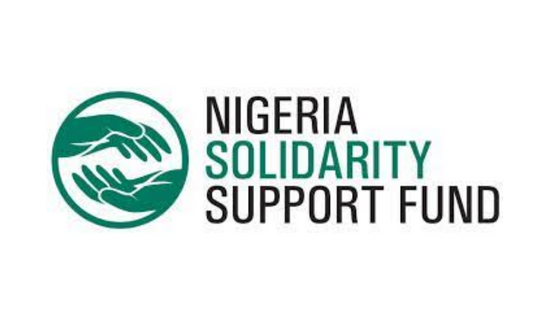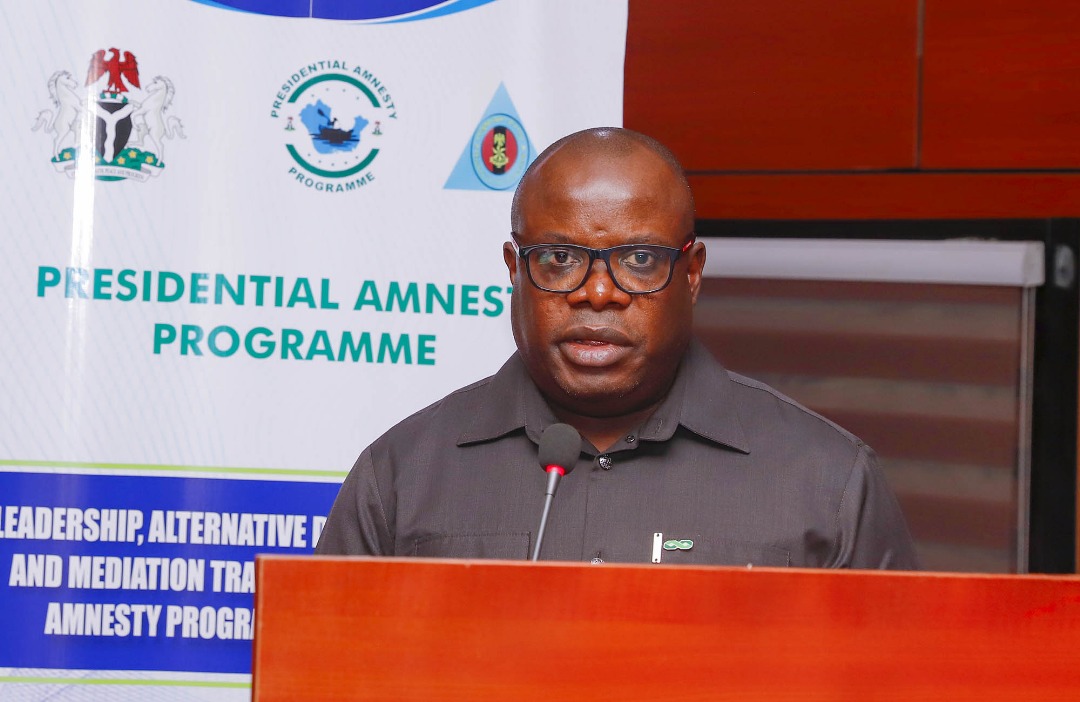News
Nigeria’s Maternal Mortality Rate Remains Unacceptably High – NSSF

The Nigeria Solidarity Support Fund has warned that Nigeria risks deepening its maternal health crisis if urgent reforms and stronger financial commitments are not made to expand access to health insurance for women, especially those in underserved communities.
Speaking after the 7th edition of the NSSF Fireside Chat Series held on Wednesday in Abuja, the Managing Director and CEO of NSSF, Dr. Fejiro Chinye-Nwoko, said the stakes could not be higher, with thousands of women dying every year from preventable causes.
“Nigeria’s maternal mortality rate remains unacceptably high, with over 1,000 deaths per 100,000 live births. This cannot continue,” Chinye-Nwoko said, according to a press statement on Thursday.
“We are here to ask the hard questions: how can we ensure that when a woman needs care, she can access it without money in her pocket and without delay? That’s what health insurance is meant to do, and it must be inclusive and accessible.”
READ ALSO: Police Intercept 488 AK-47 Ammunition Hidden In Palm Oil
The statement by NSSF’s Head of Marketing & Communications, Esther Anolu, noted that Chinye-Nwoko stressed that while tools, data, and partnerships exist to tackle the crisis, action has lagged behind the urgency of the situation.
“We know from our work in the field that women are not just uninformed — they’re unregistered, unempowered, and underserved. Awareness is low. Access is difficult. But we have the tools, the data, and the partnerships to change that. What we need now is policy implementation and financial commitment that match the urgency of this crisis,” she added.
The Fireside Chat, themed “Breaking Barriers to Maternal Health Equity: The Role of Health Insurance in Promoting Women’s Wellness,” brought together key players from government, development agencies, donors, and the healthcare sector to chart a path toward sustainable maternal health solutions.
One of the most pressing concerns raised during the event was the question, “Who pays for the health of the poor?” which triggered robust dialogue around sustainable financing. Participants agreed that without strong government-subsidised health coverage, millions of Nigerian women would remain at risk, unable to afford life-saving care when needed.
READ ALSO: Police Inspector goes berserk, kills one, injures two, holds colleagues hostage in Calabar
A Senior Officer at the Bill & Melinda Gates Foundation, Dr. Mojisola Odeku, emphasised the importance of leveraging donor support in conjunction with government funding to increase women’s access to essential health services.
Also speaking at the event, representing the Director-General of the National Health Insurance Authority, Professor Chima Onoka, highlighted efforts being made to digitise insurance enrollment and broaden coverage. He noted that innovative strategies are being deployed to remove barriers that prevent women from registering.
On her part, Director and Head of the Family Health Department at the Federal Ministry of Health, Dr. Binyerem Ukaire, highlighted existing national interventions, such as free emergency cesarean sections and treatment for Vesico-Vaginal Fistula, which are available across over 20 states. However, she acknowledged that funding gaps remain a significant challenge.
The conversation also emphasised prevention as a critical and cost-saving strategy. Panellists agreed that scaling up preventive services, including health screenings, mental health support, and access to contraception, would not only save lives but also lower long-term healthcare costs for the country.
NSSF also shared insights from its grassroots programmes, including the WeNaija Impact Cohort and field activities in Ekiti State, revealing persistent barriers such as misinformation, affordability issues, and distrust of health systems.
As a next step, NSSF said it would develop targeted policy briefs capturing key insights from the Fireside Chat to present actionable recommendations to government bodies, health institutions, and civil society.
News
Christmas: Otuaro Preaches Peace, Unity In N’Delta, Hails Tinubu’s Support For PAP

The Administrator of the Presidential Amnesty Programme (PAP), Dr Dennis Otuaro, has extended warm Christmas greetings to the people of the Niger Delta, calling for renewed commitment to peace, unity and communal harmony as the region prepares to enter the New Year.
Otuaro, in a message issued by his Special Assistant on Media, Mr Igoniko Oduma, thanked stakeholders, traditional rulers, ex-agitators, youths and communities across the Niger Delta for their sustained support for the PAP and for the administration of President Bola Ahmed Tinubu.
He described peace and unity as the bedrock upon which sustainable development in the Niger Delta must continue to be built, urging the people to remain steadfast in protecting the hard-earned stability currently enjoyed in the region.
“Peace and unity remain the strongest foundations for sustainable development. As a people, we must continue to reject violence and embrace dialogue, cooperation and mutual respect as we work collectively for the progress of our region.
READ ALSO:Otuaro Tasks Media On Objective Reportage
“I also express my profound appreciation to all stakeholders and the people of our region for your sustained support for the administration of His Excellency, President Bola Ahmed Tinubu, GCFR,” he said.
Otuaro noted that the PAP recorded significant milestones in 2025, including improved welfare for beneficiaries, enhanced educational and vocational opportunities, and strengthened reintegration outcomes, all aimed at empowering Niger Delta youths to contribute meaningfully to society.
He attributed these achievements to the visionary leadership of President Tinubu and the institutional support of the Office of the National Security Adviser (ONSA), which provides strategic guidance for the effective implementation of the programme.
Reflecting on the meaning of Christmas, the PAP boss described it as a season that embodies love, sacrifice, compassion and reconciliation, values that resonate deeply with the communal culture and shared heritage of the Niger Delta people.
READ ALSO:PAP Scholarship Scheme Vehicle For Better Future For Niger Delta —Otuaro
“Christmas reminds us of the power of love, sacrifice and togetherness. These values align naturally with the communal spirit of the Niger Delta, where collective responsibility, mutual support and shared progress have always defined our identity,” he added.
He urged beneficiaries of the Programme and residents of the region to celebrate the season with moderation and a renewed sense of responsibility to their communities.
Otuaro wished the people of the Niger Delta a Merry Christmas and expressed optimism that the New Year would usher in greater opportunities, peace and prosperity for the region and the nation at large.
“As we step into the New Year, I am confident that with continued unity, peace and collaboration, the Niger Delta will record even greater progress. I wish our people a Merry Christmas and a Happy, Prosperous New Year,” the PAP Administrator stated.
.
News
Okpebholo Slams ₦25bn Libel Suit On Edo PDP Chairman

Governor Monday Okpebholo of Edo State has given Dr. Anthony Aziegbemi, a seven-day ultimatum to pay ₦25 billion in damages over alleged defamatory statements.
In a letter by the governor’s counsel, Ray Okezie, and addressed to Aziegbemi, the PDP State Chairmen was also requested to publish a public apology in three national dailies over the alleged defamatory statements.
Aziegbemi was said to have allegedly accused the governor of using thugs and non-state actors to carry out official duties.
READ ALSO:Okpebholo Sympathises With Otaru, People of Auchi Over Tragic Tanker Fire Incident
“In the letter dated December 22, 2025, and titled ‘Demand for Damages and Apologies for Defamation of the Character of the Executive Governor of Edo State, Senator Monday Okpebholo,’ the PDP Chairman was said to have in a press statement of December 7, 2025 portrayed Okpebholo as an unintelligent, dishonest, and, lawless person.
“Accordingly, we have the instructions of our client to demand from you the sum of N25, 000,000,000.00 (Twenty Five Billion Naira only) being compensation for the damage you have inflicted on his reputation through your said press release.
“The above stated sum must get to our client within seven (7) clear days from the date of this letter. In addition, you are required within seven (7) days to publish a retraction of the said press release in three (3) National Newspapers which must include the Guardian and the Vanguard newspapers,” the letter partly reads.
The governor’s counsel threatened to proceed on legal action in any Nigerian court should the PDP State Chairman fail to comply with the demands
News
YULETIDE: UBTH CMD Charges Nigerians To Be Hopeful In Coming Year

The Chief Medical Director of the University of Benin Teaching Hospital (UBTH), Prof. Idia Ize-Iyamu has urged Nigerians to remain optimistic about the upcoming year, despite current challenges.
Prof. Ize-Iyamu expressed optimism that the coming year would bring improvements for everyone.
The CMD made these remarks during the Nine Lessons and Carol night /End of Year Party organized by UBTH for staff and students held in Benin.
Prof. Ize-Iyamu encouraged everyone to place their trust solely in Christ to overcome the numerous challenges facing the country.
READ ALSO:UBTH CMD Laments Inadequate Heath Workers, As Minister Promises Increased Funding
She expressed her gratitude to the hospital community for their support during her first four months in office.
Prof. Ize-Iyamu assured them that the coming years hold many opportunities and that hope in Christ would transform lives daily, just as Christ’s birth brings joy and is the reason for the season.
She also extended her appreciation to everyone in the spirit of the season.
READ ALSO:UBTH Marks 2023 World Antimicrobial Resistance Awareness Week
“I want to appreciate everyone in the spirit of the season. Our commitment to excellence and professionalism remains at UBTH.
“UBTH CARES and just like Christ cares. As we celebrate Christ and the season. Let’s hope on him. When you have Christ, you have hope.We are hopeful that the coming year will be better as a people and institution,” Ize-Iyamu said.
The ceremony’s highlight featured a visit to the hospital wards where the CMD distributed gifts to patients and newborns, with management, staff, and students in attendance.

 News3 days ago
News3 days agoPHOTOS: New Era In Furupagha-Ebijaw As Okpururu 1 Receives Staff Of Office

 News2 days ago
News2 days agoUBTH CMD Marks 120 Days In Office, Expresses Commitment To Providing Conducive Working Environment

 News3 days ago
News3 days agoFG Declares Public Holidays For Christmas, New Year Celebrations

 News3 days ago
News3 days agoOPINION: Gumi And His Terrorists

 News2 days ago
News2 days agoFIRS Confirms NIN As Tax ID

 News3 days ago
News3 days agoOPINION: My Man Of The Season

 News3 days ago
News3 days agoOPINION: Christmas And A Motherless Child

 Metro2 days ago
Metro2 days agoFintiri Pardons Man Sentenced To Death For ‘Killing Herdsman In Self-defence’, Others

 News2 days ago
News2 days agoKWAM 1 Withdraws From Awujale Race, Ends Court Challenge

 Metro2 days ago
Metro2 days agoPetrol Tanker Crashes Into Akpabio’s Convoy, Kills Police Dispatch Rider


























